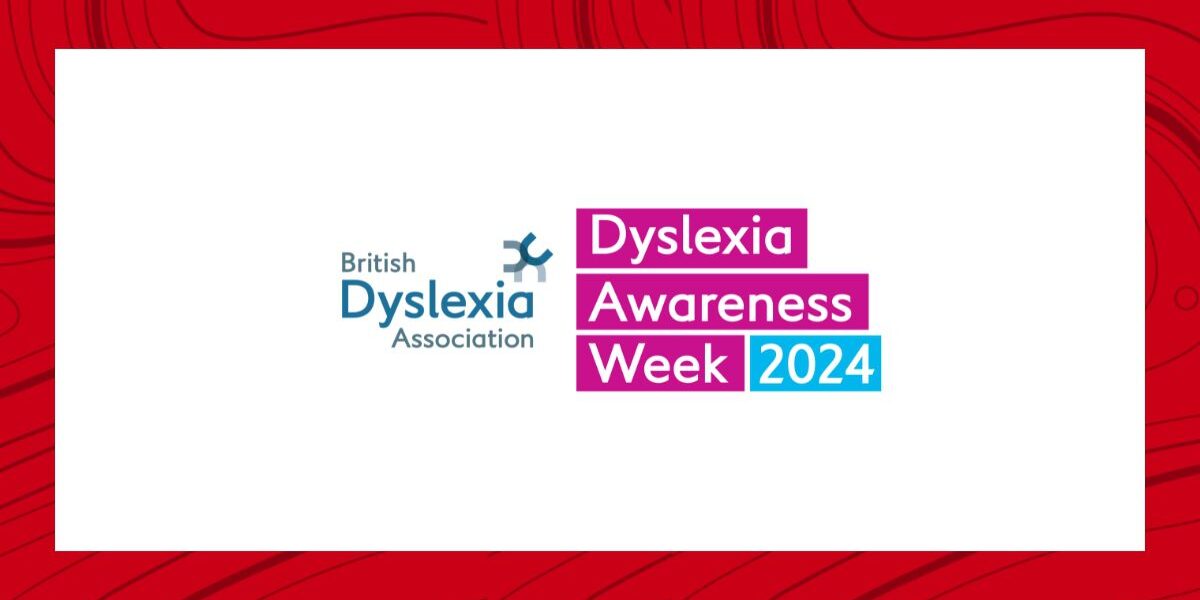Dyslexia Awareness Week October 7 – 13, 2024
Team Wales is pleased to be involved with Dyslexia Awareness Week and share an inspiring story from our CEO, Rebecca Edwards-Symmons. Diagnosed at the age of 12, Rebecca reflects on her early challenges in school, the importance of technology and speaking out, and how dyslexia has become a part of her success story. Her journey highlights the importance of embracing neurodiversity and serves as a motivation for others navigating life with dyslexia.
INTERVIEW WITH REBECCA EDWARDS-SYMMONS
Question: When were you diagnosed with dyslexia?
‘’I was diagnosed when I thought I was 12…Back then, it was quite hard to prove that I had it, and it was a long process, whereas these days it is a lot quicker.’’
Rebecca’s diagnosis of dyslexia came at the age of 12 when she was still in comprehensive school. With a family history of dyslexia, Rebecca was conscious of her struggles with writing, particularly in English lessons, where letters would get jumbled up. Although she enjoyed maths, she struggled with words, and in 1993, the diagnosis took much longer and was less accurate than it is today.
Question: How has it affected your daily life since you were diagnosed?
‘’It was very different back then…I had a typewriter as we didn’t have computers so much but now spell check sorts that out for me. However, these days, dyslexia affects me more verbally – I might say or throw a word in a conversation and people have the shock factor when I slip in a word that doesn’t quite fit.’’
Rebecca shares that technology, such as spell check and predictive text has made written communication significantly easier, however, dyslexia still present challenges in verbal communication. Even though dyslexia was viewed differently back then, she views it as somewhat of an advantage.
“I’ve always found it a bit of a superpower… an ability to cut through words to make sense,” she reflects.
Question: What was it like having dyslexia in school?
“I had extra support from teachers, but English or ‘write a story’ was the worst thing I could have been asked to do.”
Reflecting on her school experience, Rebecca recalls a time that was far from enjoyable. School was not a positive experience for her, and she struggled with the transition from one grade to the next.
“I didn’t have a great transition in school, and I think it was because I needed to work harder.”
Despite difficulties, she excelled in other subjects.
“All the stuff I was good at was dance and sport… and maths, weirdly,” she notes.
However, writing assignments during English class were among the hardest challenges she faced.
Question : Did you feel any different to your friends?
“I probably did feel a bit thick at times,” she admits.
Rebecca recognises how those feelings might have affected her self-esteem. However, she quickly shifts her perspective, stating that her dyslexia did not define her. ‘’Look at me now’’ she states reflecting on her growth and career progression, ‘’it didn’t define me, and it didn’t make any difference to me’’. Rebecca credits technology, having grown up during the digital age, which influenced her journey.
Question: Did you receive any kind of support? If so, what kind of support was it?
‘’I had extra one–on–one sessions’’ she recalls acknowledging the significant role her teachers played in her journey. Emphasizing Miss Simpson who recognised her struggles straight away and provided the support she needed,
‘’It was Miss Simpson who could see that I was struggling, and she supported me.’’
Question: What did you find most challenging about dyslexia?
In discussing the challenges of dyslexia, Rebecca reflects on the frustration of wanting to understand while experiencing a disconnection between her eyes and brain. She states:
‘’I think that the hardest bit is the fact that you want to understand something, but it’s like your eyes and your brain just don’t correlate, all these letters just jump up – with Bs becoming Ds and Cs appearing backwards.’’
However, with time, Rebecca learned how to alleviate these challenges:
‘’ You just realise then to take your time. So, me now, if I’ve got to write something that’s very wordy in terms of content, then I’ll start writing it, I’ll stop, I’ll do something else, then I’ll come back.’’
Question: Having a successful career and climbing the management ladder, what tools did you use to manage the challenges of dyslexia?
“The technology piece does help, and predictive text is great because you’ve only got to write a text, and it changes it for you’’.
Rebecca recognises the supportive role of technology; however, she highlights the power of embracing vulnerability and maintaining the practice for improvement:
‘’The further high up you get, the more big words are used. I think it’s just practice and I’m never afraid of asking a question’’ she states, remembering the moment when she feared appearing foolish for asking a question during a conference.
The person leading it came up to her afterwards and said: ‘’I’m really glad you asked that question, as I don’t think anybody knew it in the room, but you were the one that asked it.’’ This strengthened her belief that asking for clarification is a strength, not a weakness.
Rebecca’s experiences have taught her that everyone faces unique challenges.
“Nobody’s perfect, and everybody’s got to find their way in different things,” she says.
Question: What advice would you give to someone who’s struggling with dyslexia?
“It’s crucial to talk to people and surround yourself with the right tools,” she advises highlighting that there are many resources available for people facing dyslexia.
Reflecting on her journey, Rebecca mentions being fortunate to have support from a young age which made a significant difference in her experience. She also stresses that dyslexia isn’t a significant problem:
‘’It’s just another way of thinking. Dyslexic people have other traits that other people don’t and that’s the whole point of neurodiversity. There are so many different make-ups of people, we’re all fascinating in different ways, and we all help each other in different ways.’’
Rebecca encourages others to recognize their unique strengths:
‘’We all have different superpowers, so use them to your advantage rather than viewing them as disadvantages.”


